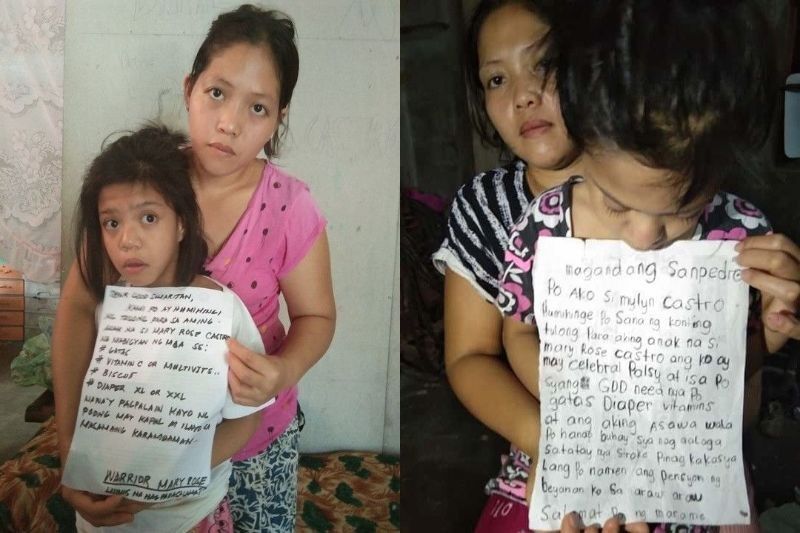LGUs urged: Help children with special needs amid COVID-19 response

MANILA, Philippines — A non-government organization Wednesday called attention to children with disabilities amid the novel coronavirus pandemic, saying their health, education and developmental needs were being neglected throughout the enhanced community quarantine, which has now eclipsed two months.
Persons with disability are among those hardest-hit by the novel coronavirus pandemic, as social distancing measures have kept them farther from necessary aid and healthcare services.
In a statement, nonprofit Save the Children Philippines urged local governments to integrate programs for special needs children in the revised quarantine measures to meet these needs.
“Children with disabilities continue to face social exclusion, discrimination and the lack of health services and therapy during quarantine which could lead to lifelong and devastating impact in their development,” said Save the Children Philippines Chief Executive Officer Albert Muyot, a lawyer.
As it stands, PWDs are among those still prohibited from leaving their homes even in low-risk areas now under general community quarantine, due to their being immunocompromised and more at risk of transmitting the new pathogen.
According to the NGO, the coronavirus pandemic caused the closure education services, day care centers, child development centers and supervised neighborhood programs, whose prolonged absences may have untoward effects on special needs children.
This, while parents and caregivers face loss of income and livelihood opportunities due to quarantine due to "no work, no pay" setups, in effect depriving their children with disabilities to get access to essential services such as therapy and rehabilitation.
“Government response plans should clearly indicate support and action for children with disabilities, particularly those who are in deprived situations and living in hard-to-reach areas,” said Sierra Paraan, Basic Education Advisor of Save the Children Philippines.
“We call for the strengthening of collaboration between the government and Disability Peoples’ Organization, civil society, parent groups and the private sector who should be part of the COVID-19 response,” said Paraan.
A 2018 study from the Philippine Institute of Development Science (PIDS) said that Filipino households with disabled children spend 15% of their income for health expenses every year.
In the past month, Philstar.com has spoken to PWD advocates and the guardians of special needs children in the past month who tell the same story: their children's moods are getting worse, and the day-to-day struggle has taken a toll on them.
"I feel sorry for her. She cannot go to school, so she just stays in the house. That's why she's irritable. Sometimes, I black out or just break down and cry...I want to have hope for my child," said Mylyn Castro, whose 10-year-old, Maryrose, lives with cerebral palsy.
In an earlier statement, the NGO called for local health centers to resume maternal and child health services and urged LGUs to put in place protective measures for children with parents who tested positive for COVID-19, as the latter could face discrimination for their family's health status or worse, be isolated and orphaned once their parents get hospitalized.
As of Tuesday afternoon's latest tally from the health department, 12,942 have been infected with COVID-19 in the Philippines.
Worldwide, the novel coronavirus has killed at least 320,255 people since the outbreak first emerged in Wuhan, China last December.
- Latest
- Trending


































